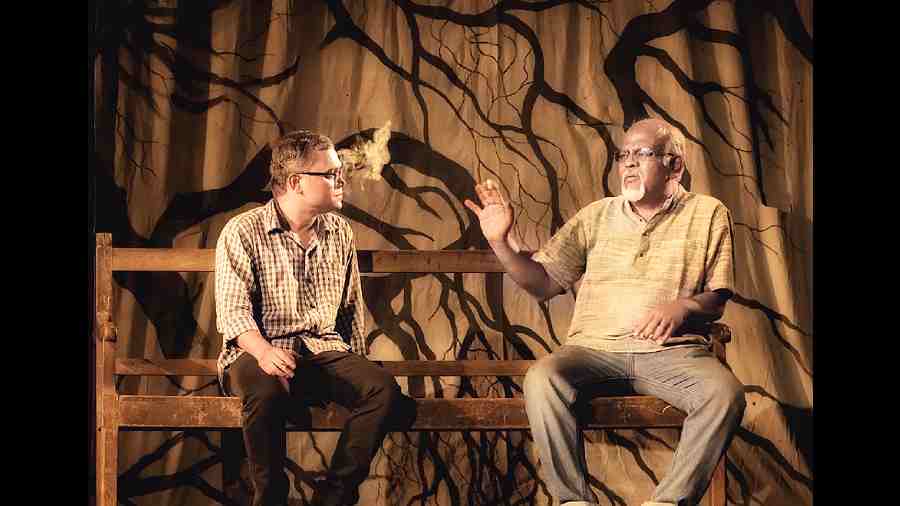Astitwa, produced by Panihati Abhijatrik and directed by Santanu Nath, is beset with a number of problematic issues, the most serious of them being an ethical one. A few minutes into the play, the reviewer was gripped by a sense of keen unease as the play was gradually turning out to be, scene by scene, another play that the reviewer had watched a couple of years ago. A Rajdnaga Dotyak production directed by Subhasis Bhattacharya, that play had the name, Dwikhondito. Santanu Nath was essaying the protagonist in Astitwa, as he had done in Dwikhondito. It is worth mentioning that at this point of time, even as Astitwa is being staged, so is Dwikhondito, with an altered cast of course.
In theatre, there have always been innumerable instances of later versions, re-workings and revivals of earlier plays, with the necessary acknowledgments duly made. The crucial problem with Astitwa is that the makers have bewilderingly remained wholly silent about Dwikhondito. Not once, either before or after the play, or in any of the publicity material, has it been acknowledged that Astitwa is indeed a contemporary version of Dwikhondito. One is not sure whether this failure to signal the antecedent of the play stems from ignorance or daredevilry about blatant plagiarism. It does seem that there are yawning gaps in some quarters of theatre in Bengal regarding being informed about the most elementary ethics of textual intersections.
Dwikhondito, based on a Shirshendu Mukhopadhyay tale, was dramatised by Souvik Sengupta and published in the journal, Group Theatre. Astitwa credits Santanu Nath as being the writer of the play’s script, acknowledging Mukhopadhyay for his story. But the problem — quite normatively for a plagiarised text — is that Astitwa differs merely cosmetically from Dwikhondito. Moreover, and most disturbingly, Nath has hardly departed from Subhasis Bhattacharya’s directorial vision and design. Astitwa does not deserve a review and has not received one — one hopes that this stringent censure pushes the makers of Astitwa towards introspection and some sort of reparation.










